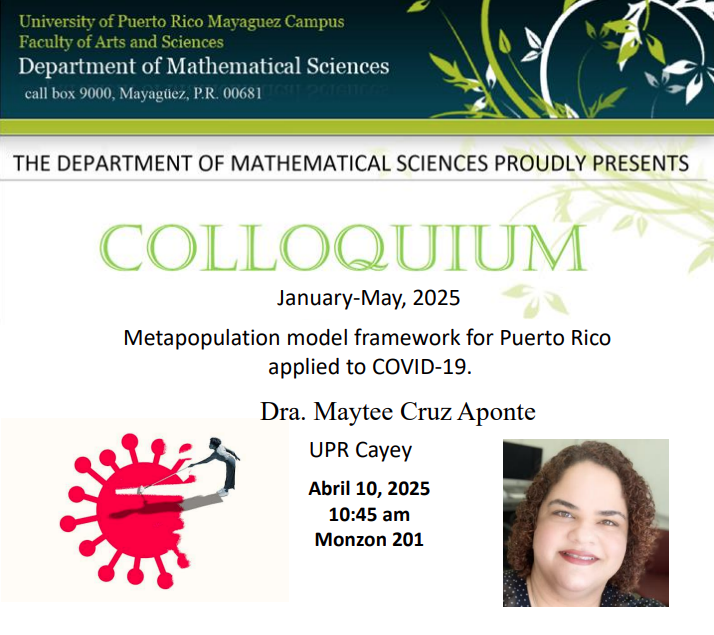Abstract:
The COVID-19 pandemic has highlighted significant challenges for public health systems worldwide, demonstrating not only the lethality of infectious diseases but also the critical role of public behavior that influence case numbers and mortality rates, particularly in geographically isolated regions like Puerto Rico. This study presents a metapopulation model framework to analyze the transmission dynamics of COVID-19 across Puerto Rico’s municipalities on the main island. By integrating demographic, mobility, epidemiological data, government executive orders, and key events specific to the island, the model captures the interplay between local outbreaks and inter-municipality spread. The study emphasizes how such models scan effectively represent the spatial dynamics of disease transmission, focusing on the pivotal influence of ‘human mobility parameters’ in enhancing the predictive accuracy of SIR-type models. Core components of the framework include evaluating the impact of non-pharmaceutical interventions (NPIs), such as government-imposed mobility restrictions, social events, and vaccination campaigns. Ultimately, this work aims to provide a robust spatial metapopulation epidemiological modeling framework that accounts for human mobility in Puerto Rico. The framework is designed to support informed public health decisionmaking, serving as a foundation for simulating future disease scenarios and fostering community awareness and preparedness.
Place: Monzón 201
Hour: 10:45 a.m.

